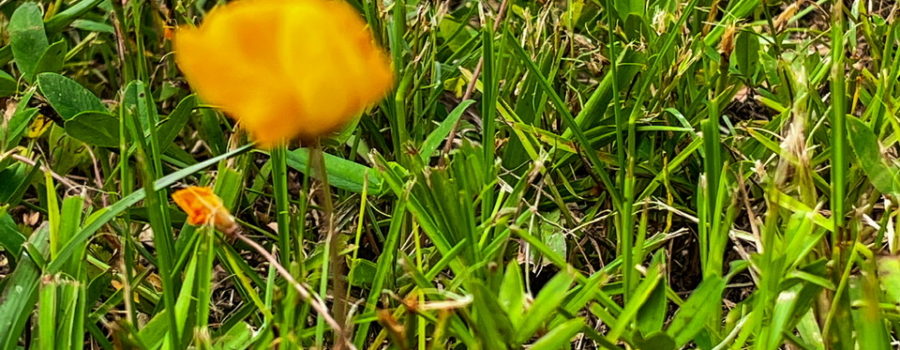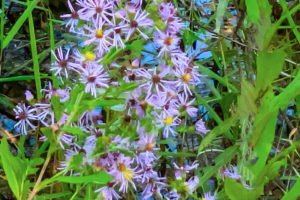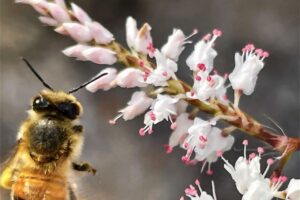Perennial Peanuts Can Make a Beautiful Ground Cover

A few weeks ago I was on my way out to see my friend, Mary, who lives not too far from me. As I was driving, I passed this field that was covered by a bunch of really pretty little yellow flowers that were growing close to the ground among the grass. It called out to me to stop for a bit of photography. I’ve made that drive many times in the past and never noticed this field before(don’t ask me why because it had to have been there!). After a short photo session I continued on my way, having no idea what the pretty little flowers were. It actually wasn’t until I got ready to write this post that I identified the flowers as peanuts. I had to start laughing because about a week earlier, while we were doing cat TNR, Mary and I had been talking about growing various edible plants, including peanuts. Peanuts are a pretty big business in this part of Florida, and it’s not uncommon to drive by planted peanuts in fields here, but they are usually far enough away from the road that you can’t see the plants very well. In our discussion, we had both been wondering if peanut plants flowered! We both expected that they did, since most plants that produce any type of fruit or nut have flowers, but neither of us was sure. The conversation moved onto other things, and I had actually forgotten about it (otherwise I could have Googled peanuts to see if they flowered) until just a few minutes ago. So there you go; in case you were wondering, yes, peanuts do flower!

But it’s not quite as simple as that (of course!). There are actually two different types of peanut plants. The ones we see in the farmer’s fields, planted in perfect rows to make harvesting easier are annuals. They actually produce the peanuts under ground after the pollinated flowers droop to the ground and undergo a process called “pegging”. Annual peanuts don’t make great ground cover unless you want to have to replant every year. Perineal peanuts are closely related to annual peanuts, but they do not produce nuts and, of course, they don’t die off each year. Instead of reproducing via seeds, perennial peanuts produce new plants from rhizomes on the root system. Like other rhizome producing plants, this allows them to spread pretty quickly; a desirable trait in a ground cover. Like annual peanuts, they produce these gorgeous little yellow flowers, but instead of producing them only once per year, perineal peanuts will flower all summer long.

Perennial peanuts are pretty tough little plants, too. They like to be kept wet, especially when first getting established, but once established, they are quite drought resistant. They like sandy, loamy soil that drains well (ideal for our area!) and tolerate a wide pH range. They prefer full sun, but will also do well in partial shade areas. They are also pretty salt resistant, so they can be grown near or on the beach to help stabilize dunes. In areas that stay free of frost (south Florida) they will stay green all year long. In areas like ours that get a few freezes each winter, the leaves will die back, but they quickly regrow come spring. They tolerate mowing (in fact, mowing will stimulate flower production), and a fair amount of traffic (but don’t plant them in really high traffic areas). Their spread via rhizomes also allows them to out compete many weeds that like to grow in lawns, like dandelions. And finally, because they are legumes, perennial peanuts fix nitrogen in the soil, so they generally don’t need to be fertilized.

All in all, if you live in the south and are tired of mowing your lawn, or tired of fighting weeds, you might want to consider using perennial peanuts as a ground cover. It’s easy to care for (you don’t even have to mow it at all if you don’t want too!), it’s good for your soil and therefore for your other plants, and it produces beautiful flowers all summer. The flowers are actually also edible and will add a peanut flavor to salads. All in all, it sounds ideal to me! What do you think?





Recent Comments